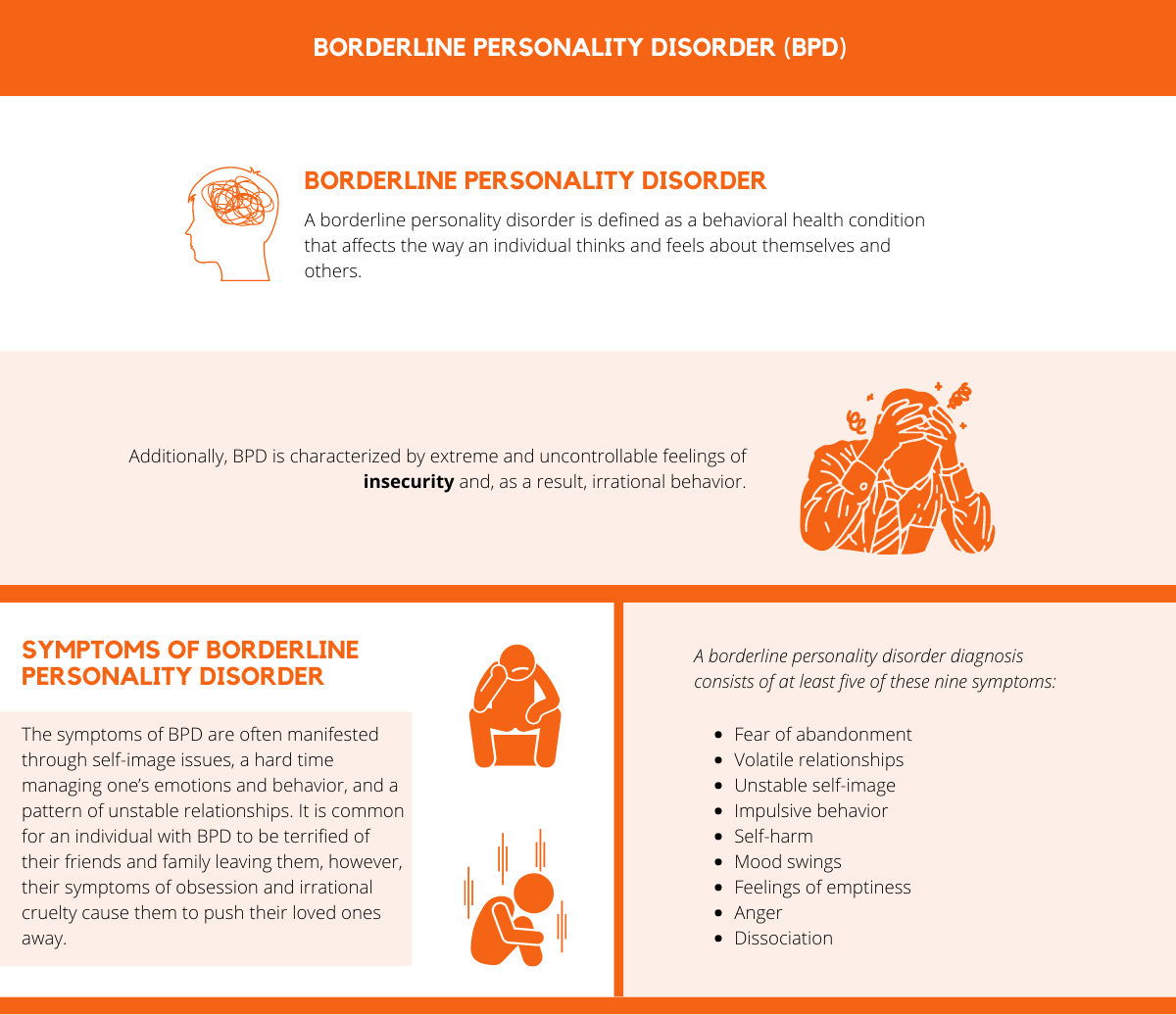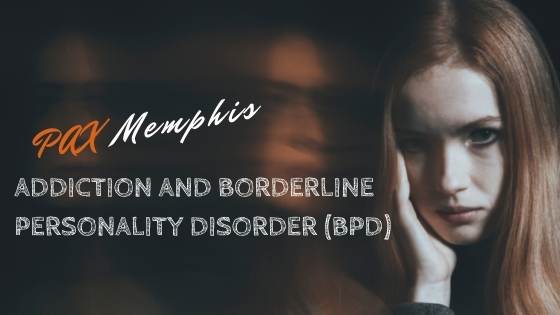Addiction is a progressive disease that affects every aspect of an individual’s life. Dealing with the effects of addiction can be extremely difficult, especially if you have pre-existing mental health conditions.
When an individual suffers from addiction and an additional mental health disorder, this is referred to as co-occurring disorders or dual diagnosis. Many individuals suffer from addiction as well as depression, anxiety, bipolar disorder, borderline personality disorder, or any other mental health condition you can think of.
Borderline personality disorder (BPD) is a serious mental health condition that affects 1.6 percent of adults in the United States.[1] This mental health disorder is known to cause emotional regulation and interpersonal relationships to become difficult for individuals. As a result of this, individuals suffering from BPD have a higher risk of developing addictions to substances. With that being said, nearly 78% of individuals with a borderline personality disorder also suffer from substance abuse issues.[2]
Let’s take a look at the connection between borderline personality disorder and addiction.
What is Borderline Personality Disorder (BPD)?

A borderline personality disorder is defined as a behavioral health condition that affects the way an individual thinks and feels about themselves and others. Additionally, BPD is characterized by extreme and uncontrollable feelings of insecurity and, as a result, irrational behavior.
The symptoms of BPD are often manifested through self-image issues, a hard time managing one’s emotions and behavior, and a pattern of unstable relationships. It is common for an individual with BPD to be terrified of their friends and family leaving them, however, their symptoms of obsession and irrational cruelty cause them to push their loved ones away.
A borderline personality disorder diagnosis consists of at least five of these nine symptoms:
- Fear of abandonment
- Volatile relationships
- Unstable self-image
- Impulsive behavior
- Self-harm
- Mood swings
- Feelings of emptiness
- Anger
- Dissociation
If you or a loved one have experienced the mentioned symptoms, you may have BPD. Contact a mental health professional to begin diagnosis and treatment.
What Causes Borderline Personality Disorder?
While it is difficult to pinpoint an exact cause of borderline personality disorder, several factors may contribute to its development. To begin, research has shown that BPD may have genetic contributors, as it is common for this condition to run in the family.
Next, BPD is a mental disorder, meaning brain function may play a role in its development. Individuals who suffer from a borderline personality disorder may have impaired communication within their brains, causing irrational emotions and behaviors that make them more susceptible to addiction.
Lastly, the most common cause of BPD has been proven to be environmental factors. This mental health condition has a huge connection to experiencing past trauma or childhood trauma. For example, traumatic experiences such as abuse or neglect as a child are a huge factor in the development of BPD. Because of this, many individuals are misdiagnosed with post-traumatic stress disorder (PTSD) when they are actually suffering from BPD.
How Is Addiction Connected to Borderline Personality Disorder?
A borderline personality disorder is known to cause social isolation and turbulent relationships. Unironically, some of the main causes of addiction tend to be social isolation and the inability to form healthy relationships. (stomadentlab.com) Let’s take a look at the similar symptoms between borderline personality disorder and addiction.
BPD and addiction often cause the same symptoms, such as:
- Impulsive Behavior: Similar to BPD, addiction is characterized by drug-seeking at the expense of personal relationships, finances, health, and much more.
- Mood Swings: Individuals who abuse stimulant drugs experience a high followed by a crash. Additionally, many substances cause unpleasant after-effects such as depression and anxiety. All of these symptoms are synonymous with BPD.
- Emptiness: Individuals suffering from an addicted brain will crave drugs or alcohol to feel normal, leaving a void whenever the substance wears off.
- Dissociation: People who suffer from addiction often feel disconnected from the world around them, as well as from the biological, psychological, and social consequences of their addiction. This is similar to individuals with BPD.
Individuals with BPD may also suffer from unpredictable emotions and impulsive behaviors that they are unable to control. Oftentimes, these individuals turn to substances to calm themselves or numb their uncomfortable emotions. Unfortunately, this only leads to the development of a dual diagnosis of addiction and BPD.
Treating Addiction and Borderline Personality Disorder
While recovery may be a difficult and lengthy process, individuals who suffer from borderline personality disorder and addiction can recover. One of the most common methods of treatment for BPD and addiction is referred to as dialectical behavior therapy (DBT). This form of therapy was originally developed to treat borderline personality disorder, with the focus being on mindfulness and positive change. DBT encourages patients to accept that they have BPD and acknowledge that they will have to work hard to recover.
Similar to other behavioral therapies, DBT works to help patients to change their thoughts and behavior by learning to control their emotions and healthily deal with stress. Due to this, DBT helps treat the impulsive thoughts and actions associated with addiction as well. Thankfully, many addiction treatment centers provide mental health tracks for patients who suffer from co-occurring disorders like addiction and BPD.
If you or a loved one require treatment for borderline personality disorder and addiction, contact PAX Memphis today.
References:
Medically Reviewed: September 25, 2019

All of the information on this page has been reviewed and verified by a certified addiction professional.










